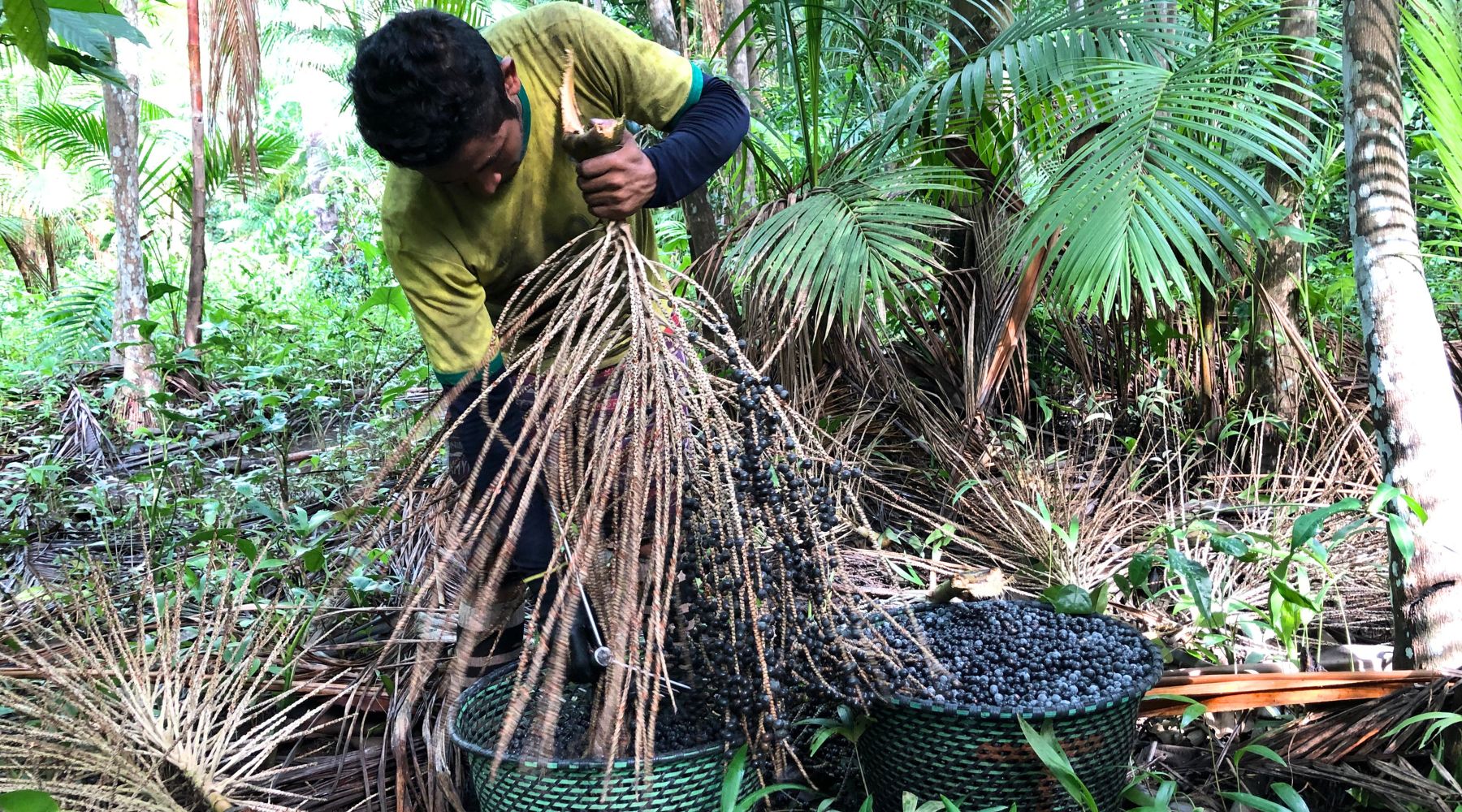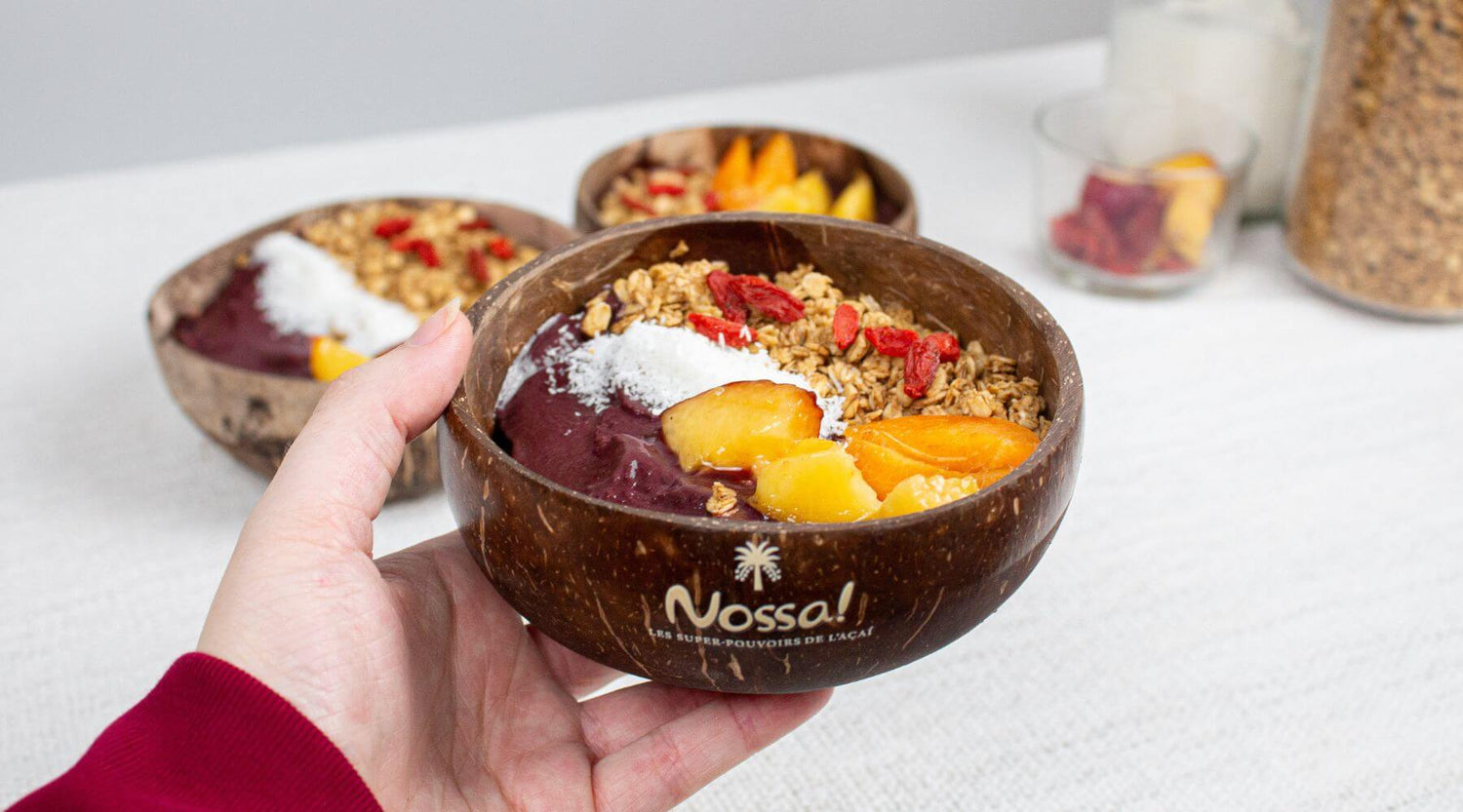The global acai market is booming, driven by its superfood status. However, this dynamic growth comes with significant price fluctuations, which can destabilize both industry stakeholders and consumers. Several factors that we’ll explore in this article explain these fluctuations.
Climate impact and acai
Acai is harvested in the flooded areas of the Amazon, where the climate plays a crucial role. However, recent climatic disruptions have made production even more challenging.
Extreme weather events
The Amazon experienced record floods in 2021 and 2022. Torrential rains submerged production zones. This made harvesting more complex and costly. Acai pickers had to overcome logistical difficulties just to access the acai palms.
En 2023 et 2024, cette région du monde a dû faire face à des sécheresses historiques. Ces sécheresses prolongées ont réduit la croissance des palmiers d’acai, entraînant une chute des volumes récoltés. Le faible approvisionnement a conduit à une hausse significative des prix, avec une augmentation de 70 % cette année.
A fragile agriculture without irrigation
Unlike other crops, acai production depends entirely on natural conditions. The lack of large-scale irrigation systems leaves harvests vulnerable to unpredictable and increasingly frequent climate events. These directly affect the supply chain.
A booming global demand
Acai, a rising global superfood
In the United States, the acai market is now larger than in Brazil. American consumers are massively embracing acai smoothies, bowls and snacks.
In Europe and Australia, acai's popularity keeps rising, with growing integration into everyday consumer habits. Companies are innovating by developing acai-based products tailored to local trends and preferences.
Exports have skyrocketed. In 2024, acai exports were 30 times higher than in 2018, a record level. This export boom is putting additional pressure on supply, and contributes to rising prices.
The role of media and wellness trends
Acai enjoys a positive image, boosted by influencers and nutritionists promoting its health benefits. This enthusiasm fuels exponential demand, which is sometimes difficult to satisfy during low-yield seasons.
Why is acai a key crop for the Amazon?
Toutes les marques d’acai ne suivent pas les mêmes pratiques agricoles. Chez Nossa!, nous avons fait le choix de sourcer notre acai exclusivement auprès de cueilleurs pratiquant l’agroforesterie.
C’est un modèle forestier durable qui se distingue par sa capacité à préserver les écosystèmes tout en permettant une exploitation respectueuse des ressources naturelles.
La récolte de l’acai dans les agroforesteries permet aux palmiers d’acai de coexister avec la faune et la flore locales. Cette méthode contribue à préserver la biodiversité et à lutter contre la déforestation.
En plus de protéger la forêt, cette méthode soutient les communautés locales grâce à une rémunération juste et équitable.
C’est pourquoi notre pulpe Terraçai by Nossa! est certifiée bio et "Fair for Life", garantissant une traçabilité complète et des pratiques éthiques.
Avec plus de 20 millions d’habitants de l’Amazonie dépendant de cette culture, ce modèle socio-économique joue un rôle crucial dans la région.
The impact of farming methods on price fluctuations
Dans les productions agroalimentaires, l’essentiel des émissions de CO2 provient des pratiques agricoles, pas du transport. C’est pourquoi les méthodes de culture jouent un rôle déterminant.
Contrairement aux monocultures intensives, l’agroforesterie préserve la fertilité des sols et limite la dépendance aux conditions climatiques extrêmes, comme les sécheresses ou les inondations qui affectent régulièrement l’Amazonie.
At Nossa! we promote resilient practices to meet these challenges:
-
We only work with cooperatives committed to sustainable, soil-friendly agriculture.
-
No pesticides or chemical fertilizers are used in our production, which helps minimize environmental impact.
-
Agroforestry helps reduce the risk of massive losses due to extreme climatic events.
How do these fluctuations affect the consumer?
Unavoidable price increase
With growing global demand and climate-related challenges, acai prices can sometimes soars. These fluctuations affect the entire chain, from harvesters to consumers.
Focus on transparency
To explain these fluctuations, it is essential to raise consumer awareness about the origin of the product, the efforts made to preserve the environment and the benefits it brings to local communities.
A future that balances sustainability and accessibility
At Nossa!, we remain committed to offering high-quality acai, while facing climate and economic challenges. Through our commitment to agroforestry and our collaboration with local partners, we are working to ensure sustainable and responsible production.
Curious to learn more about our sustainable approach and products? Discover our range of acai products and support a model that values both biodiversity and local communities in the Amazon.


